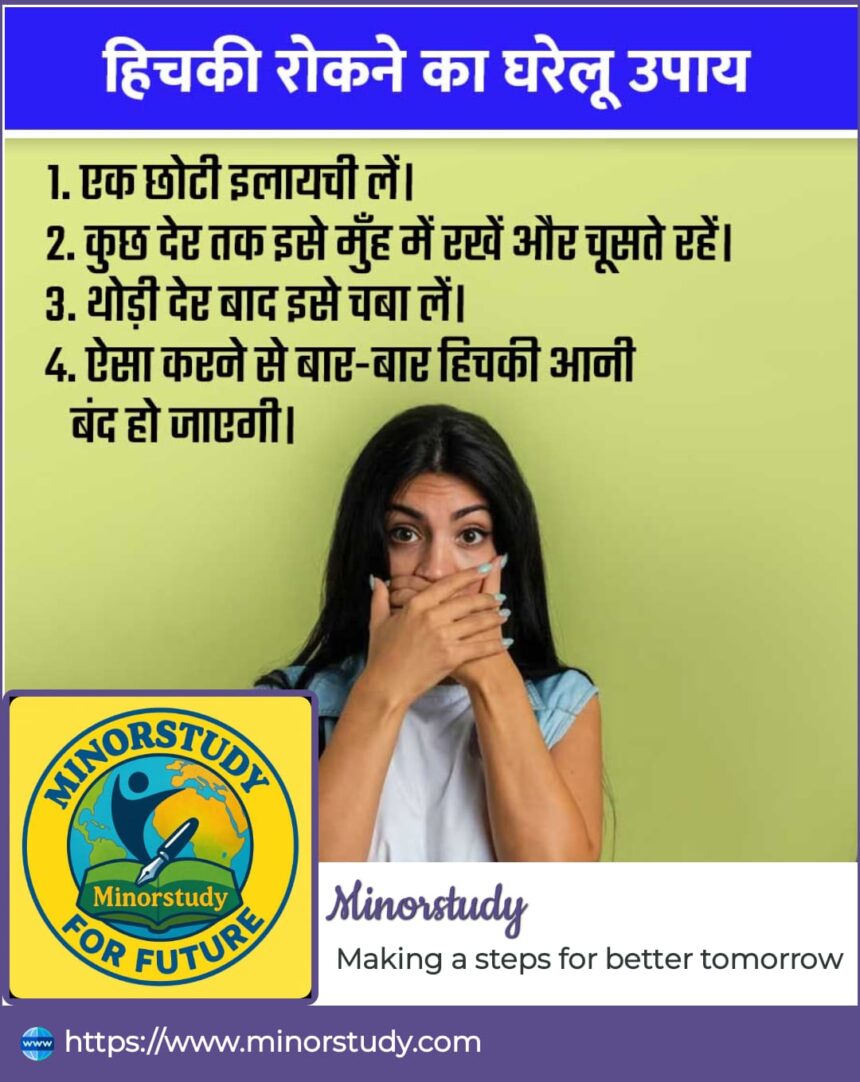🧠 Introduction: Hiccups – Harmless Yet Horribly Annoying!
Hiccups: We’ve all been there. You’re enjoying a nice meal or having a hearty laugh when hic!—it strikes. A hiccup. Then another. And another. Before you know it, you’re either laughing it off or Googling ways to make it stop. While hiccups are usually harmless, they can be incredibly irritating, especially in social situations or at bedtime.
- 🧠 Introduction: Hiccups – Harmless Yet Horribly Annoying!
- 📜 History: How Did Ancient Cultures Handle Hiccups?
- 💡 Amazing Facts About Hiccups
- ✅ 11 Surprising Home Remedies to Stop Hiccups Instantly
- 1. 💧 Drink Cold Water Slowly
- 2. 🧊 Hold Your Breath
- 3. 🎭 Use the Paper Towel Method
- 4. 🍯 Swallow a Spoonful of Honey or Peanut Butter
- 5. 🌬️ Breathe Into a Paper Bag
- 6. 🧂 Taste Something Sour (Lemon or Vinegar)
- 7. 🥤 Drink Water Upside Down
- 8. 👃 Plug Your Ears and Drink Water
- 9. 🧘 Practice Deep Yogic Breathing
- 10. 💆 Apply Pressure Between Eyebrows or Diaphragm Area
- 11. 🧄 Eat a Spoon of Cardamom Water or Fennel
- 🗓️ Timeline: Understanding Hiccups Through Time
- ❓ FAQs – All You Need to Know About Hiccups
- 🌟 Significance in Our Lives
- 🌱 Observance in Global and Cultural Context
- 📌 Important Points at a Glance
- 💌 Wishing You a Hiccup-Free Day!
- 🌍 Importance in Society and Public Health
- 🧭 Conclusion: Small Problem, Simple Solution, Strong Impact
Fortunately, there are natural, simple, and science-backed home remedies to stop hiccups—many of which are both quirky and effective. In this article, we explore these remedies in detail, along with the history, facts, significance, and impact of hiccups on our daily lives and society.
📜 History: How Did Ancient Cultures Handle Hiccups?
Hiccups have intrigued people for thousands of years. While they might seem trivial, various civilizations developed creative ways to stop them.
Ancient Greeks believed hiccups were a sign of emotional outbursts and used vinegar and breath-holding techniques.
Ayurvedic practitioners in India suggested cardamom tea, cooling herbs, and yoga breathing.
Chinese medicine associated hiccups with a disturbance in the qi (life energy) and treated it using acupressure or herbal infusions.
In European folklore, a person got hiccups when someone was talking about them—and a sudden scare or a drink of water was the “cure.”
Clearly, hiccups were more than just a biological reaction; they were wrapped in cultural stories and remedies.
💡 Amazing Facts About Hiccups
Hiccups are caused by involuntary contractions of the diaphragm.
The medical term for hiccups is singultus.
The longest recorded hiccup spell lasted 68 years (Charles Osborne, USA).
Hiccups can be triggered by eating too fast, carbonated drinks, sudden temperature changes, or even emotions.
Babies, especially in the womb, often hiccup as part of normal development.
Hiccups usually last a few minutes but can become chronic (>48 hours) and may indicate underlying medical conditions.
✅ 11 Surprising Home Remedies to Stop Hiccups Instantly
1. 💧 Drink Cold Water Slowly
Sipping cold water slowly helps calm the vagus nerve, which is linked to hiccup reflexes. For better results, try gargling with cold water too.
2. 🧊 Hold Your Breath
Take a deep breath and hold it for 10-20 seconds. This increases carbon dioxide in the blood, which might reset your diaphragm’s rhythm.
3. 🎭 Use the Paper Towel Method
Drink water through a paper towel. It creates slight resistance, engaging throat and diaphragm muscles.
4. 🍯 Swallow a Spoonful of Honey or Peanut Butter
Sticky substances like honey or peanut butter stimulate the vagus nerve and distract the diaphragm with a different muscle movement.
5. 🌬️ Breathe Into a Paper Bag
Inhale and exhale into a paper bag for a few breaths. The CO₂ buildup can help relax diaphragm spasms. Don’t overdo it!
6. 🧂 Taste Something Sour (Lemon or Vinegar)
Sucking on a lemon wedge or sipping a teaspoon of vinegar shocks your system and may interrupt the hiccup reflex arc.
7. 🥤 Drink Water Upside Down
Bend at the waist and drink water from the opposite side of the glass. The odd posture often resets the diaphragm.
8. 👃 Plug Your Ears and Drink Water
Insert your fingers into your ears (gently) while someone else gives you water. This stimulates the vagus nerve via the ear canal.
9. 🧘 Practice Deep Yogic Breathing
Use pranayama (like Anulom Vilom or Bhramari). It calms your nervous system and brings breathing and diaphragm movements into harmony.
10. 💆 Apply Pressure Between Eyebrows or Diaphragm Area
Light pressure on the glabella (between your eyebrows) or the center of your diaphragm can distract and reset the nervous impulse causing hiccups.
11. 🧄 Eat a Spoon of Cardamom Water or Fennel
These herbs help soothe the stomach and diaphragm, especially if hiccups are due to gastric issues.
🗓️ Timeline: Understanding Hiccups Through Time
| Period | Insight or Practice |
|---|---|
| ~400 BCE | Greeks noted hiccups in medical literature |
| ~1000 BCE | Ayurveda detailed herbs and breath control |
| 14th Century | European folklore tied hiccups to gossip |
| 20th Century | Scientific understanding of diaphragm spasms |
| Modern Era | Natural and neural remedies coexist globally |
❓ FAQs – All You Need to Know About Hiccups
Q1: What causes hiccups?
A: Hiccups occur due to involuntary diaphragm spasms, often triggered by overeating, carbonated drinks, or emotional excitement.
Q2: Are hiccups dangerous?
A: Most are harmless, but chronic hiccups (>48 hours) may signal issues like GERD, stroke, or nerve damage.
Q3: Can hiccups affect babies and elderly?
A: Yes. Babies hiccup as a normal reflex; in elderly people, hiccups can sometimes be linked to medication or illness.
Q4: Do hiccups go away on their own?
A: Most last just a few minutes and resolve without treatment.
Q5: When should I see a doctor?
A: If hiccups persist longer than 48 hours, are painful, or interfere with eating/sleeping.
🌟 Significance in Our Lives
Hiccups, while minor, can have major consequences in certain moments:
In social settings, they cause embarrassment.
During public speaking, they interrupt fluency.
In infants, they may disturb feeding.
For patients recovering from surgery, prolonged hiccups can be distressing.
Learning to manage hiccups naturally gives us more control and comfort in everyday life.
🌱 Observance in Global and Cultural Context
There is no specific “World Hiccup Day,” but hiccups are acknowledged in:
Folk medicine
Humor and literature
Spiritual practices (some believe it’s a sign of negative energy or gossip)
Cultures often view hiccups as a message from the body—either physical or metaphysical.
📌 Important Points at a Glance
✅ Hiccups are caused by diaphragm spasms
✅ Most resolve within a few minutes
✅ Natural remedies include breath control, cold water, and sour foods
✅ Chronic hiccups may require medical attention
✅ Managing hiccups improves daily comfort and confidence
💌 Wishing You a Hiccup-Free Day!
May your moments be smooth, your breaths steady, and your laughter hiccup-free! The next time a hiccup pops up uninvited, you now hold the key to quick, natural, and effective relief.
Wishing you calm breaths, good health, and peace—one sip and one breath at a time. 🌿
🌍 Importance in Society and Public Health
Though seemingly minor, hiccups have social, psychological, and even economic effects:
Sleep disturbance
Speech interruption
Feeding issues in infants
Complications in post-operative patients
Cultural misinterpretations
Raising awareness about easy home remedies empowers people to handle small health issues independently and responsibly, reducing the load on healthcare systems.
🧭 Conclusion: Small Problem, Simple Solution, Strong Impact
Though hiccups may be “small,” they have the power to annoy, embarrass, and disrupt. But the home remedies to stop hiccups prove one thing: simple, natural methods still reign supreme when it comes to instant, effective relief.
So next time hiccups sneak into your day, smile, stay calm, and reach for a spoon of honey, a glass of water, or even your breath—because you now know exactly what to do.









mi6kyw